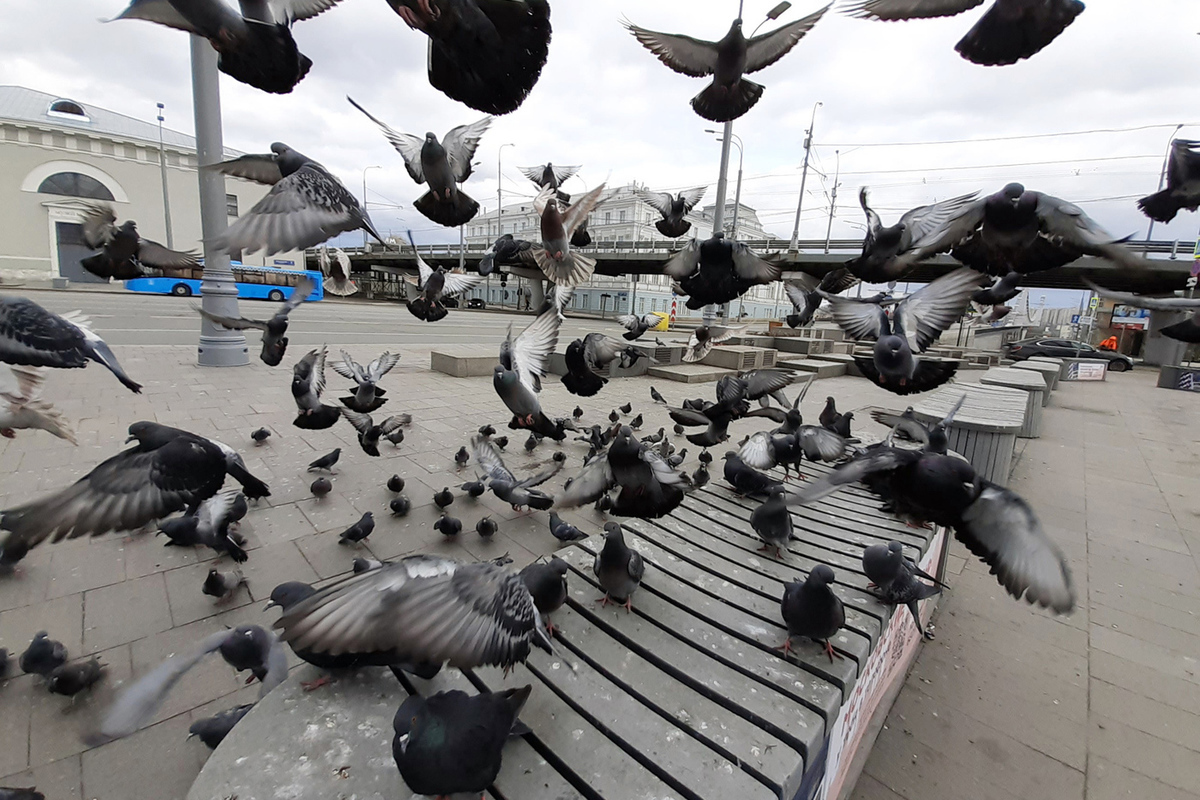Ornithologist Evgeny Koblik told how urban birds were corrupted in Europe
[ad_1]

“In Russia the situation is different, and our pigeons are wilder”
In the fall, Muscovites begin to think about feeding birds, but there are nuances to this good deed. Most urban birds find food on their own, although not always successfully. There are two problems – drunkenness and hooliganism: too arrogant pigeons and crows steal food from people, and someone pecks berries soaked in alcohol. An ornithologist explained to MK why not all birds need to be fed in the fall.
The phenomenon of “drunk birds” has been discussed for several years. The fact is that after the first frost they peck at fermented berries (most often rowan berries), which is why they can get drunk. Sometimes such birds lay drunk under the trees, and then, having sobered up, flew away. True, this happens rarely – not every year and not in every city. Alcohol has the same effect on birds as it does on humans, and the overall adequacy of behavior is noticeably reduced. Birds in this state are defenseless, so they can easily become victims of a dog or other predator.
Animals, by the way, remain the main threat to birds in the metropolis. There is another one – lack of food. Moscow birds can sometimes carry crumbs, for example, from street tables in cafes, but they are calmer than pigeons in Amsterdam or Venice – there, as tourists well remember, a pigeon can literally snatch a sandwich out of their hands.
As ornithologist Evgeny Koblik explained in a conversation with a MK correspondent, the behavior of birds directly depends on the current situation in the city – and they react to excessive human tolerance with permissiveness.
“It’s appropriate to say here: “How you were raised.” The greater tolerance of Europeans towards city birds has led to the fact that pigeons have become insolent. Several times they were allowed to steal food from the streets, and they continue to do so. There is another nuance: in Western Europe there are more urban landscapes than natural ones, so most birds become urban. They have nowhere to go. The situation in Russia is different, and our birds are wilder. They have somewhere to hide from the city, and they are less accustomed to humans. For example, the blackbird in Europe is a city bird, but in our cities you rarely see it. Although, by the way, now he has become much less timid. In England there are robins everywhere, which in our country also do not live in cities.
According to Koblik, birds are gradually becoming civilized, and this is directly related to human behavior – if he allows slight hooliganism, then the birds will quickly develop a habit. For example, the situation with urban ducks in Moscow is approaching the same as in Europe with pigeons, although this was not the case 10 years ago.
“I’ll say one thing for sure: you absolutely cannot feed pigeons and crows,” continues Koblik. “We must not forget that pigeons also pose an epidemiological threat. In addition, the balance is disrupted. If you feed pigeons too actively, there will be fewer tits and blackbirds, and so on.
[ad_2]
Source link








